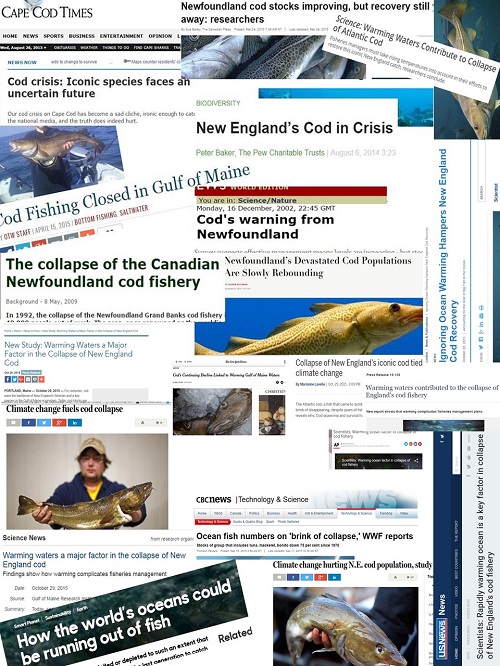The disputation will be live streamed using Zoom. The host of the session will moderate the technicalities while the chair of the defence will moderate the disputation.
Ex auditorio questions: The chair of the defence will invite the audience to ask ex auditorio questions either written or oral. This can be requested by clicking "Participants" followed by clicking "Raise hand".
The meeting opens for participation just before 1.15 PM, and closes for new participants approximately 15 minutes after the defense has begun.
Trial lecture
"Ocean warming impacts on exploited food webs - patterns and consequences for fisheries management"
Main research findings
What drives the collapse and what drives the recovery of a fish stock in a changing environment? Illustrated by the example of Atlantic cod, this thesis elaborates on impacts of fishing, ocean warming, ocean acidification and spawner characteristics on recruitment dynamics, which can individually or synergistically influence the population trajectory. The response of the fish population can be surprising and abrupt, if climate change passes an optimum-an increasingly likely situation in future. In the extreme case, the underlining biology irreversibly shifts and invasive management measures are necessary to conserve the fish. In Atlantic cod, such a “regime shift” towards lower productivity may be the reason why the rebuilding of many fish stocks stagnates despite fishing restrictions.
Nonlinear dynamics are challenging from a scientific perspective, because they are difficult to detect and predict; and from a management perspective, because strategies need to be precautionary, adaptive and based on the latest science. Drawing from insights on climate change driven productivity changes and the importance of a policy and institutional framework that acknowledges these, this thesis ends with suggestions for scientifically informed, ecosystem-based and precautionary management practices that can improve the state of fisheries and allow for a viable fishery in the future.

